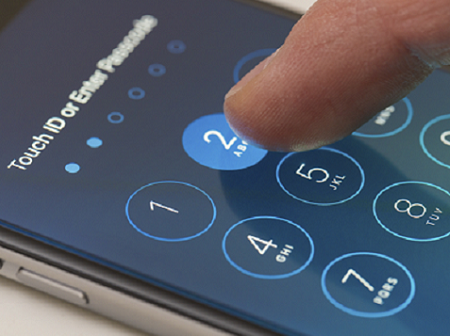Obama At SXSW Highlights Encryption, Government-Tech Divide
At the heart of the FBI's struggle with Apple is an us-versus-them sentiment that President Obama may be softening -- by reframing "government problems" as problems for the nation's greatest problem solvers.


iPhone Encryption: 5 Ways It's Changed Over Time
iPhone Encryption: 5 Ways It's Changed Over Time (Click image for larger view and slideshow.)
The FBI case against Apple has drawn a dramatic battle line between government and the tech communities. President Obama, while not at liberty to discuss the details of the case, used his time before an enthusiastic tech crowd at SXSW March 11 to offer a reframing of both the encryption debate kicked off by the Apple case and a general sentiment toward government that has encouraged such a sharp divide.
"The reason I'm here really is to recruit all of you," Obama said, sitting in conversation with Texas Tribune editor-in-chief Evan Smith.
(The Boston Globe is among the outlets that have provided a full transcript.)
Genial and seemingly off-script, Obama made a case for government's need for the incredible US tech community. Government is big and bloated and tech is known to be sleek and streamlined. So, Obama's argument went, why leave our country's most important problems to the former, while the latter focuses on cool, but not always important, stuff.
"If we can reconceive of our government so that the interactions and the interplay between private sector, nonprofits and government are opened up, and we use technology, data, social media in order to join forces around problems, then there's no problem that we face in this country that is not soluble," Obama said. "And the key is to have incredible talent, as is gathered here, to focus on it. It's not enough just to focus on what's the cool next thing."
{Image 1}
That gentle elbow nudge of a remark arguably summed up a major stress point for the country and part of Obama's agenda for participating in the conference: Our nation's sharpest tech minds aren't the ones focused on our biggest tech problems.
"He was making quite a complex and nuanced pitch that went past the Apple situation," Ezra Gottheil, a principal analyst with Technology Business Research, told Information Week. "He's trying to educate an important block of influencers, as individuals and as a community. And that makes lots of sense."
Obama reminded the crowd that he once passed a law called the Affordable Care Act. "And then the website didn't work," he said, to laughter and applause.
"Here's what happened as a consequence of healthcare.gov breaking down, though. We had to bring in a SWAT team of all my friends from Silicon Valley and from Austin and some of the best software engineers in the world to come in and fix it -- which we did in about three, four months' time," Obama continued.
"And what we realized was that we could potentially build a SWAT team, a world-class technology office inside of the government that was helping across agencies. We've dubbed that the US Digital Services. And we've got some of the top talent from Google, from Facebook, from all the top tech companies. These folks are coming in, in some cases, for six months, in some cases for two years, and they are making an enormous difference..."
Obama went on to say that it doesn't mean people have to work directly with the government or run for office. "But it does mean that whatever your field is, there is a way right now for you to engage and participate to take this democracy back in ways that we have not seen in a very long time."
The erasing of the battle line that could occur, as more of the tech community steps toward government, feeling welcome, relevant, and needed, could help to avoid future debacles like the one Apple finds itself in now.
According to an early-March survey by the Wall Street Journal and NBC News, the country is nearly evenly split on the matter, with 42% of Americans believing Apple should cooperate with law enforcement and unlock the iPhone of one of the San Bernardino terrorists, and 47% saying Apple should not cooperate.
The next major case to divide the country could be one against WhatsApp. The New York Times reported March 12 that the Justice Department is discussing how to proceed in a criminal investigation that's been stymied by WhatsApp's encryption, which makes it impossible for calls or messages over the app to be viewed or listened to by investigators with a judge's wiretap order.
The policies for ensuring balance, in today's world, "haven't been modernized. There's not a clear set of instructions for what to do," said TBR's Gottheil. "What Obama's saying is, 'Let's build something, and let's be balanced about it. We need to plan for these things.'"
Toward the end of the interview, Obama addressed the encryption struggle.

Gain insight into the latest threats and emerging best practices for managing them. Attend the Security Track at Interop Las Vegas, May 2-6. Register now!
"If your argument is strong encryption, no matter what, and we can and should, in fact, create [what amount to] black boxes, then that I think does not strike the kind of balance that we have lived with for 200, 300 years," said Obama. "It's fetishizing our phones above every other value. And that can't be the right answer."
He also asked that cool heads consider the issue, while there's still the option.
"If everybody goes to their respective corners and the tech community says, you know what, either we have strong, perfect encryption, or else it's Big Brother and an Orwellian world -- what you'll find is that after something really bad happens, the politics of this will swing, and it will become sloppy and rushed, and it will go through Congress in ways that have not been thought through," Obama said. "And then you really will have dangers to our civil liberties ..."

About the Author(s)
You May Also Like
How to Amplify DevOps with DevSecOps
May 22, 2024Generative AI: Use Cases and Risks in 2024
May 29, 2024Smart Service Management
June 4, 2024







